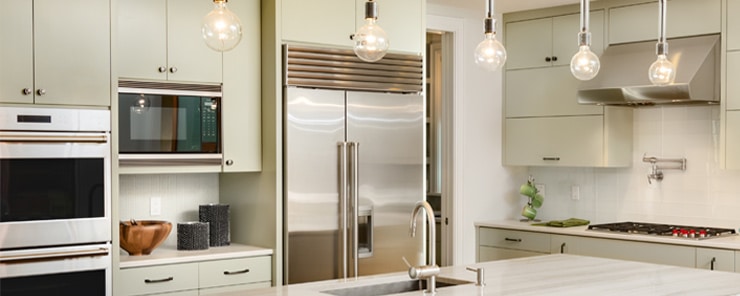The National Electrical Code requires certain appliances be served by a single dedicated circuit. No other appliances may be served by these dedicated circuits to avoid overloading your electrical system. But how do you know which appliances need dedicated circuits? You can always contact your local electrician to get more information. Until then, we’ve got a few tips to help you navigate.
What is a dedicated circuit?
First, a circuit is a path through which energy flows. When a circuit supports a single appliance, it’s known as a dedicated circuit. This means that the appliance has its own breaker in your circuit box. This ensures high-power appliances have access to the proper voltage or amperage to function safely in your home. Learn more about dedicated circuits here.
Dedicated circuit appliances
Depending on your home, there are several appliances that could need a dedicated circuit. Usually these appliances are ones that have motors to ensure proper and efficient power for the appliance to function best. Keep this in mind when discussing options with your local electrician.
Appliances that need a dedicated circuit include:
- Refrigerators
- Freezers
- Stoves
- Wall ovens
- Microwaves
- Toasters
- Dishwashers
- Garbage disposals
- Furnaces
- Heating and air conditioning units
- Water heaters
- Washers
- Dryers
- Space heaters
- Garage door openers
- Central vacuums
- Whirlpools/Jacuzzis/hot tubs/saunas
- Blow dryers
- Sump pumps
- Water pumps
- Certain areas like bathrooms, kitchen counter area and garages
Do you have more questions about dedicated circuits? Contact us!

